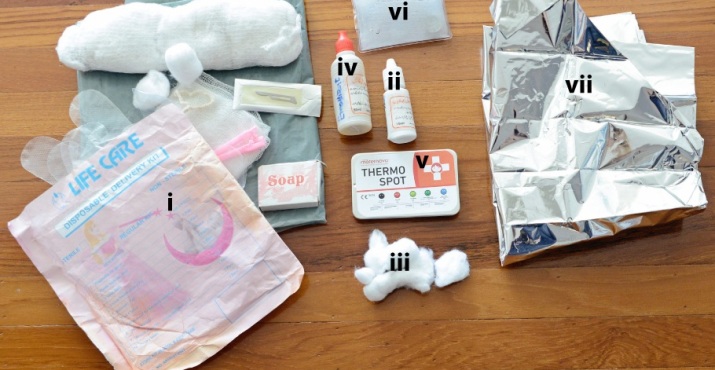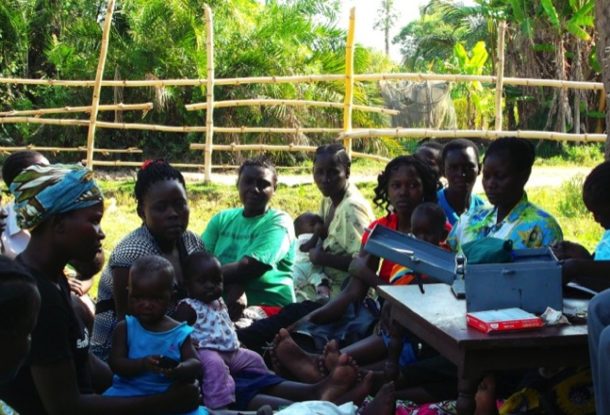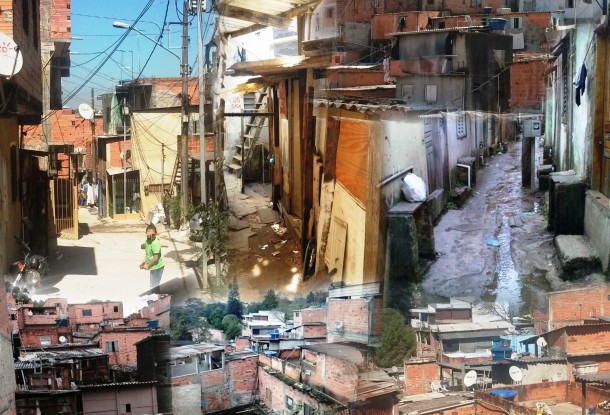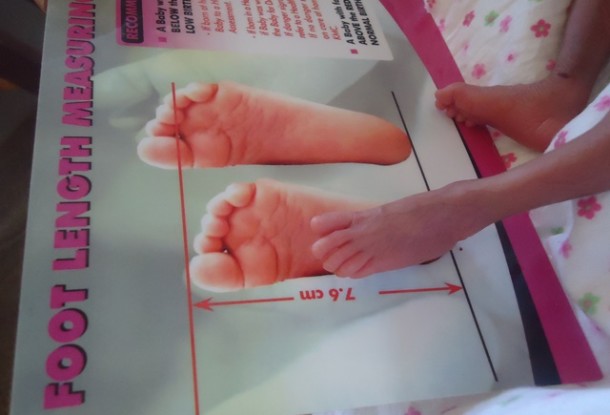Figure 1 Newborn Toolkit
Innovation Summary
 The first month of life is a critical period in brain development that can be affected in many ways, including the same insults that are major causes of newborn death, namely hypothermia and infection.
The first month of life is a critical period in brain development that can be affected in many ways, including the same insults that are major causes of newborn death, namely hypothermia and infection.
The newborn toolkit, which was created by scientists at Toronto’s Centre for Global Child Health at The Hospital for Sick Children, aims to reduce newborn mortality and improve brain development.
The newborn toolkit (Figure 1) includes:
- A clean delivery kit to minimize infection at the time of delivery.
- An antiseptic lotion that when applied to the umbilical stump, reduces certain severe infections and all-cause mortality.
- Cotton balls to apply the antiseptic lotion to the umbilical stump.
- An emollient to promote skin integrity, and hence help to reduce infection and prevent hypothermia.
- A temperature monitoring device called ThermoSpot to identify hypothermia and fever;
- A reusable non-electric heating device to treat hypothermia.
- A mylar infant sleeve to treat hypothermia.
Community health workers will be supplied with a handheld scale to weigh infants and spot early warnings signaled by low birth weight.
A sub-set of participants will be trained how to stimulate their infants. Newborn stimulation training will occur either on its own or in combination with the innovative toolkit described above. The stimulation program involves play, responsive caregiving, and communication strategies.
Gallery
Impact
- A total of 4500 caregiver-newborn pairs will receive an intervention.
- 1500 will be provided with a newborn toolkit and will be educated on how to use the contents.
- 1500 will be taught how to stimulate their newborns.
- 1500 will be provided with both the newborn toolkit and stimulation program.
- Expected outcomes:
- 40% reduction in newborn mortality rate.
- Improved neurodevelopmental score at 12 months of age.
- Cost:
- Approximately $5 per newborn toolkit.
The first few weeks of life are a critical time for brain development. ... Early insults to developing brains can result in altered neurodevelopment and ultimately, decreased human capital.
-- Dr. Shaun Morris, Huffington Post
Innovation
The components of the portable toolkit have individually been shown to reduce the incidence of neonatal insults or provide early identification of danger signs so that prompt action can be taken. Community health workers will deliver the toolkit to pregnant women during their third trimester of pregnancy and will teach them how to correctly use the contents of the kit. It is important to highlight that caregivers and not community health workers will utilize the toolkit.
Collaboration
Funders
- Grand Challenges Canada
Key Partners
- Maternova, USA (maternova.net). Maternova is the supplier of ThermoSpot and mylar infant blankets.
- Baby Hero, Hong Kong (babyhe.ro). For every item purchased from Baby Hero, three kit components are donated (clean birth kit, antiseptic lotion, and emollient).
Implementation:
Key Drivers
- Cooperation and support from all levels of Kenyan government.
- Cooperation and engagement from community health workers.
- Caregiver engagement.
- Ease of use of intervention.
- Acceptability of the intervention in the community.
- Affordability of the intervention.
Challenges
Deeply ingrained human behaviors and beliefs may be difficult to change. For example, in some settings harmful substances are frequently applied to the umbilical stump. It may be difficult to convince participants to replace the use of familiar, yet harmful substances, with safe substitutes they are not familiar with.
Continuation
If the kit improves neurodevelopment and reduces newborn mortality we will explore options for sustainable larger-scale roll out including options for incorporating the kit into the routine community health worker program in Kenya.
Through support from the Stars in Global Health program at Grand Challenges Canada, the impact of the toolkit on newborn mortality is also being evaluated in Rahimyar Khan, Pakistan.
Evaluation Methods
The impact of the newborn kit, newborn stimulation program, and newborn kit plus stimulation program on neurodevelopment will be evaluated at 12 months of age through the Kilifi Developmental Inventory (KDI) assessment. The KDI was designed in Kenya to assess the psychomotor function of children aged 6 to 35 months of age in resource-limited settings.
The impact of the interventions on newborn mortality will be evaluated through questionnaires administered to caregivers on day 1, 3, 7, 14, and 28 of the newborn’s life.
Resources
-
Research
-
Instruments & Batteries
-
Kilifi Developmental Inventory. Psychomotor development. Monitoring psychomotor development in a resource-limited setting: an evaluation of the Kilifi Developmental Inventory.
-
0The WHO verbal autopsy instrument (adapted to our study setting). Cause of death. Verbal autopsy standards: The 2012 WHO verbal autopsy instrument. Release Candidate 1.
-
-
Multimedia





